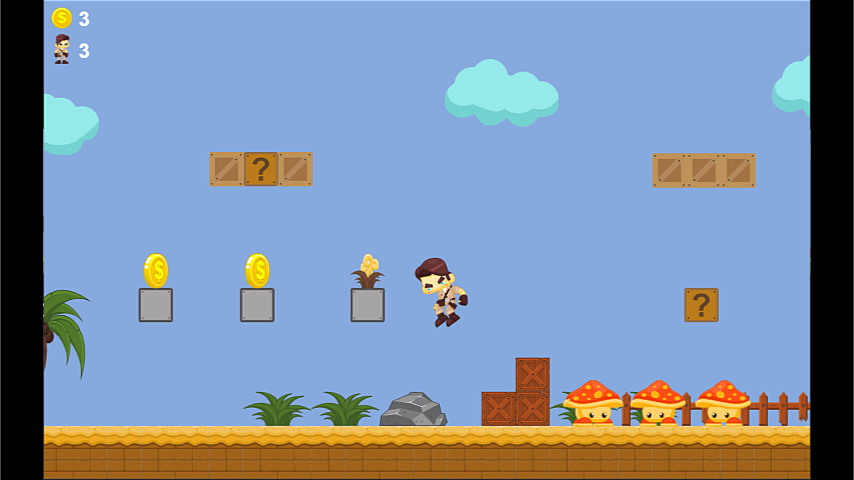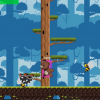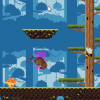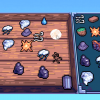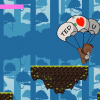Hey everyone. In this post here today, I want to talk about prototyping video games in order to learn a new game engine, and the benefits of doing so. This same act can apply to other things, such as learning a new application for designing art or web designs. You can take the same things from this article, and apply it to any new hobby or professional endeavor, such as creating various types of images or designs, to learn some design software that is new to you.
The best way to learn anything new, whether that is sketching lifelike drawings, planting/taking care of a garden, or designing and developing video games is by practice, and repetition. I often read or hear people say that it takes 10,000 hours to master any complex skill, made popular by Malcolm Gladwell’s book titled, “Outliers.”. Definitely worth a read, for many reasons I will not go into here.
Recently I’ve switched over to a different game engine than the one I’m used to working in. I took a week after I first installed the software, and bought the license, sat down with the application and prototyped as many games as I could within that first week time period. The idea was to learn how the application functions as a whole. Learn what I could create inside the game engine, and how long different concepts would take to mockup, and prototype. This would give me an idea of how long different games would take to create using the software. Along with what it’s capabilities are, and it’s limitations as well.
First things first. I came up with several game designs, I would be able to prototype and implement using the new engine. Then, I sat down, and got to work. It’s not easy to learn something new, especially if you are brand new to something. Luckily there is a wealth of educational resources available online, and with any good or decent computer application, there will be included well documented documentation for help and assistance. The documentation is typically stored on their website(as it’s constantly being updated as new revisions of the software are released). But, there is usually also an option to download the current version of the documentation available, to your computer locally. Which may speed up browsing the documentation, depending on your internet connection speeds. You will then have it locally just incase your internet connection goes down as well.
The idea behind coming up with, and designing small games all in a row like this, is pretty simple. It’s to learn how to design and develop a wide array of gameplay mechanics, styles, and features using the new tools at your disposal. If you get stuck along the way, don’t be scared to search online, or reach out to others. Most applications and tools available online, will also have a community present on their websites where other folks using the software can help out with any problems that may present themselves along the way. Some will even have a chat room, these days typically housed on the application titled Discord(available on mobile and desktop devices). Discord acts a way to setup servers for like minded individuals to come together and chat, either via text, or voice. It was originally designed as a replacement for TeamSpeak, to allow online gamers to communicate while playing online video games together.
This goes for anything really. I’m a member of 20+ servers on Discord. Everything ranging from game development, to meditation and self care. You can find a server based on just about any subject these days. Most of the time the people on there will be kind and helpful. But, as always you may come across some discouraging folks online, or in real life. I find it’s best not to take anything they say to heart(do not take anything personally). They are living their own lives, and are most likely insecure, or going through their own problems, if they are trying to discourage or bring someone down in their endeavors to learn or start something new.
Online communities become very handy, especially as there may be very few people you know in your life that are into the things you are, such as game development. You may have a friend here or there you can talk into giving it a shot, but they may not stick with it like you do. Or it’s just a fleeting hobby they pickup, and then move onto the next thing. It can be difficult to keep moving forward sometimes, especially without encouragement, and someone there to cheer you on. It’s important to become self reliant, confident in your skills, and abilities to learn new skills. And, at the same time find supportive groups and people online that can help you along the way if you get really stuck on something.
A word of recommendation though. Be sure to do your best to overcome whatever obstacle you are facing on your own, and with the help of online documentation, and tutorials you find along the way. This will help you grow as an individual, and allow you to help others along the way. Search the community’s forums for the same question you want to ask, as it may have already been answered in the past. This will save everyone a lot of time in the long run.
Prototyping many different styles of games will build up your skills with any game engine, whether it incorporates a drag n drop style editor, or uses some form of programming/scripting language. It will help you figure out different ways to implement new designs, and gameplay elements into your games. Whether it may be adding controller support to your game, adding special effects, or even building your game, in a new style never done before.
So before jumping into a huge project that will take many hours, weeks, months, and even years. I really recommend sitting down, and prototyping several smaller games to help learn the ropes, and how to repair bugs/issues found in your games. Below I’ve embedded a YouTube video featuring 9 of the games I prototyped that week. As you can see, I created everything from platformers, to race car games, to simple pathfinding games(where enemies will calculate and find a path to the player object in the game).
